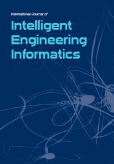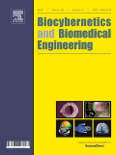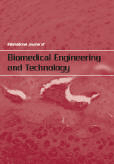
International Journal of Online and Biomedical Engineering
Scope & Guideline
Pioneering Knowledge in Online and Biomedical Engineering
Introduction
Aims and Scopes
- Biomedical Engineering Applications:
Research focusing on the application of engineering principles to medical and biological problems, including medical imaging, diagnostics, and rehabilitation technologies. - Artificial Intelligence and Machine Learning in Healthcare:
Studies that explore the implementation of AI and machine learning techniques for improving diagnostics, treatment prediction, and patient monitoring. - Internet of Things (IoT) in Healthcare:
Investigations into how IoT technologies can be utilized to enhance patient care, remote monitoring, and data collection in healthcare settings. - Virtual and Augmented Reality in Education and Training:
Research on the use of virtual and augmented reality technologies for enhancing learning experiences in engineering and medical education. - Cybersecurity in Healthcare Systems:
Analysis of the security challenges and solutions related to the implementation of digital technologies in healthcare environments. - Remote and Online Laboratory Technologies:
Exploration of technologies that enable remote access to laboratory experiments and educational resources in engineering and biomedical fields. - Data Management and Analysis in Biomedical Research:
Studies that focus on effective data management, analytics, and the application of big data techniques in healthcare and biomedical research.
Trending and Emerging
- Deep Learning and Advanced AI Techniques:
There is a significant rise in publications employing deep learning methodologies for various healthcare applications, from imaging diagnostics to predictive analytics. - Telehealth and Remote Monitoring Solutions:
Research focusing on telehealth technologies and remote patient monitoring systems has surged, particularly in response to the global pandemic and the need for accessible healthcare. - Blockchain Technology in Healthcare:
An increasing number of studies are exploring the application of blockchain for ensuring data security, interoperability, and transparency in healthcare systems. - Wearable Health Technologies:
Emerging research on wearable devices for health monitoring and data collection is gaining traction, reflecting a shift towards patient-centered, real-time health management. - Interdisciplinary Approaches Incorporating IoT:
There is a trend towards integrating IoT with healthcare applications, emphasizing real-time data collection and smart healthcare solutions. - Gamification and Virtual Reality in Medical Training:
The use of gamification and virtual reality in medical and engineering education is increasingly popular, enhancing engagement and practical skills training.
Declining or Waning
- Traditional Medical Imaging Techniques:
Research focusing solely on conventional imaging methods (e.g., X-rays, CT scans) is becoming less prevalent as interest shifts towards advanced AI-driven imaging analysis and integration. - Basic Laboratory Techniques and Protocols:
Papers centered on fundamental laboratory methods are waning as the field moves towards more innovative and technology-driven approaches that incorporate automation and online access. - General Health Education without Technological Integration:
Studies that provide health education without the incorporation of technological tools or innovations are less common, suggesting a growing expectation for integrated solutions.
Similar Journals

Progress in Biomedical Engineering
To elevate biomedical solutions for a healthier tomorrow.Progress in Biomedical Engineering, published by IOP Publishing Ltd, is a premier open-access journal that serves as a vital platform for the dissemination of innovative research in the field of biomedical engineering. With an impressive Q1 classification in the Biomedical Engineering category for 2023, this journal has established itself as a significant contributor to the advancement of engineering solutions that improve healthcare outcomes. Recognized for its high-quality and impactful publications, it ranks 51st out of 303 in its field on Scopus, placing it in the 83rd percentile. The journal aims to foster interdisciplinary collaboration and introduce pioneering methodologies and technologies that bridge the gap between engineering and medicine. By providing a pathway for rapid communication of fundamental and applied research, Progress in Biomedical Engineering is dedicated to shaping the future of healthcare technology. Access to its content ensures that researchers, professionals, and students remain at the forefront of biomedical innovation.

Biomedical Engineering Online
Exploring cutting-edge solutions for modern medical challenges.Biomedical Engineering Online, published by BMC, is an esteemed open-access journal in the United Kingdom that has been advancing the field of biomedical engineering since its inception in 2002. With a commitment to disseminating high-quality research, the journal encompasses a broad scope, including innovative studies in biomaterials, imaging technologies, and medical applications. Recognized within the Q2 quartile for various categories such as Biomaterials and Biomedical Engineering, it ranks favorably among its peers: Rank #58 out of 333 in Radiology, and Rank #15 out of 63 in Radiological and Ultrasound Technology in the Scopus database. These rankings, coupled with an open-access model, ensure that critical advancements in medical technology are accessible to researchers, health professionals, and students globally. As it continues through its converged years from 2002 to 2024, Biomedical Engineering Online remains an invaluable resource for anyone involved in the cutting-edge intersection of engineering and medicine.

International Journal of Intelligent Engineering Informatics
Driving Excellence in Engineering Informatics Research.International Journal of Intelligent Engineering Informatics, published by INDERSCIENCE ENTERPRISES LTD, stands at the forefront of research in the interdisciplinary domains of computer science, artificial intelligence, and human-computer interaction. With an ISSN of 1758-8715 and E-ISSN of 1758-8723, this journal serves as a vital resource for researchers and professionals seeking to explore the latest advancements in intelligent engineering and informatics techniques crucial for the evolution of modern technologies. Although currently not an open-access publication, it provides a necessary platform for disseminating high-quality research; its impact factor continues to grow, attracting a diverse readership interested in signal processing, software development, and computer vision. Covering innovative topics from 2022 to 2024, the journal is committed to fostering scholarly dialogue that paves the way for emerging trends and applications in the field, ensuring its relevance and significance in today's rapidly advancing technological landscape.

Jordanian Journal of Computers and Information Technology
Catalyzing Academic Excellence in Computing ResearchJordanian Journal of Computers and Information Technology, published by Princess Sumaya University and SRSF, stands as a significant platform for scholarly research in the realm of computer science, particularly in topics related to emerging technologies and information systems. With its Open Access model initiated in 2015, the journal facilitates global access to high-quality research findings, embodying the principles of knowledge sharing and academic collaboration. The journal's ranking in the Q3 category of Computer Science (miscellaneous) and its placement in the 54th percentile of Scopus' General Computer Science rankings underscore its growing reputation among researchers and professionals alike. Situated in Amman, Jordan, the journal actively contributes to the regional and international discourse on computing methodologies, applications, and innovations, making it an indispensable resource for scholars seeking to advance their understanding and engage with contemporary issues in technology.

Wearable Technologies
Empowering Health Solutions with Wearable AdvancementsWearable Technologies is an esteemed peer-reviewed journal published by CAMBRIDGE UNIV PRESS, focusing on the innovative intersection of technology and healthcare. Since its establishment in 2020, this Open Access journal has garnered significant recognition in the field of Biomedical Engineering, with a remarkable impact factor reflected in its top-tier rankings—Q1 in Biomedical Engineering and Rehabilitation, and Q2 in Human-Computer Interaction. Positioned as a leader in its domain, Wearable Technologies continually explores the advancements and applications of wearable devices, facilitating groundbreaking research that enhances user interaction and rehabilitation outcomes. With its robust Scopus rankings—including a 92nd percentile in Medicine Rehabilitation—this journal serves as an invaluable resource for researchers, professionals, and students keen on advancing the understanding and application of wearables in various fields. Based in Cambridge, United Kingdom, it aims to stimulate scholarly conversation and disseminate pivotal discoveries that shape the future of both technology and healthcare.

Frontiers in Remote Sensing
Leading the way in open-access remote sensing scholarship.Frontiers in Remote Sensing is an innovative open-access journal published by FRONTIERS MEDIA SA, dedicated to advancing the field of remote sensing through high-quality research and groundbreaking studies. Launched in 2020, this journal has quickly established itself as a pivotal platform for scientists and researchers working in the spheres of Physics and Astronomy and Biochemistry, Genetics, and Molecular Biology. With impressive rankings in Scopus, including a 68th percentile standing in Physics and Astronomy, it provides a vibrant forum for discussions on new methodologies, applications, and technological advancements in remote sensing. The journal is committed to facilitating knowledge dissemination by providing fully open access to its content, ensuring that useful scientific insights are readily available to a global audience. As it converges towards its initial evaluation period (2020 to 2024), Frontiers in Remote Sensing aims to solidify its role as a key resource for researchers, professionals, and students looking to innovate and excel in this dynamic field.

Biocybernetics and Biomedical Engineering
Innovating for Better Patient OutcomesBiocybernetics and Biomedical Engineering, published by ELSEVIER in the Netherlands, is a prestigious journal that stands at the forefront of the intersecting fields of biomedical engineering and artificial intelligence. With an impressive Impact Factor that places it in the Q1 category for Biomedical Engineering, this journal not only ranks 17th out of 303 in Scopus but also boasts a remarkable percentile ranking of 94th, highlighting its influence and relevance within the scientific community. Since its inception in 2008, Biocybernetics and Biomedical Engineering has aimed to publish cutting-edge research that integrates principles of cybernetics with technological advancements in health care, thereby fostering innovations that improve patient outcomes. Dedicated to advancing knowledge in biomedical technology, the journal serves as a vital resource for researchers, professionals, and students seeking to explore the latest developments and methodologies in the field.

Biomedical Engineering-Biomedizinische Technik
Bridging Disciplines for Revolutionary Biomedical SolutionsBiomedical Engineering-Biomedizinische Technik, published by WALTER DE GRUYTER GMBH, serves as a pivotal platform for advancing knowledge in the field of biomedical engineering and medicine since its inception in 1956. With an ISSN of 0013-5585 and an E-ISSN of 1862-278X, this peer-reviewed journal offers accessible insights into innovative research and technological advancements that are reshaping healthcare practices and biomedical applications. Although rated in the Q3 category for both Biomedical Engineering and Miscellaneous Medicine in 2023, the journal's impact factor and growing reputation demonstrate its vital role in fostering academic dialogue and collaboration. The journal is based in Germany, while its scope encompasses a diverse range of topics, thus bridging the gap between engineering and medical disciplines. Researchers, professionals, and students alike are encouraged to engage with the content that not only highlights contemporary challenges but also presents groundbreaking solutions in biomedical technology.

Advanced Biomedical Engineering
Advancing the future of health through engineering excellence.Advanced Biomedical Engineering is a peer-reviewed open access journal published by the Japanese Society for Medical & Biological Engineering, dedicated to disseminating high-quality research in the multidisciplinary fields of biomedical engineering. Boasting an ISSN of 2187-5219, this journal has been pivotal since its inception in 2018, especially as it embraces the open access model to foster knowledge sharing and wide accessibility. Centered in Tokyo, Japan, it serves as a vital platform for scholars and practitioners across various domains, such as biomaterials, biomedical engineering, and biotechnology. Despite currently residing in the Q4 quartile across several categories, including those in biotechnology and computer science applications, the journal is committed to elevating its academic impact and reputation, aiming for improved rankings in Scopus and other databases. Researchers and professionals are encouraged to contribute their innovative findings, discussions, and case studies, facilitating the advancement of this dynamic field.

International Journal of Biomedical Engineering and Technology
Empowering Research to Transform Biomedical TechnologiesThe International Journal of Biomedical Engineering and Technology, published by INDERSCIENCE ENTERPRISES LTD, serves as a pivotal platform for the dissemination of innovative research in the field of biomedical engineering. This journal, with ISSN 1752-6418 and E-ISSN 1752-6426, has been a valuable resource since its inception in 2007, boasting a converged publication timeline extending to 2024. Based in the United Kingdom, the journal aims to bridge the gap between engineering and biomedical sciences, facilitating interdisciplinary collaboration. As reflected in its 2023 Scopus ranking in the Q4 quartile of Biomedical Engineering, the journal remains accessible for researchers at various stages of their careers, contributing to its significance in promoting advancements in healthcare technologies. While currently not an open-access publication, the journal remains dedicated to enriching the biomedical engineering community by presenting novel research that addresses critical challenges, ultimately aiming to improve patient outcomes and drive innovation in medical devices and therapies.